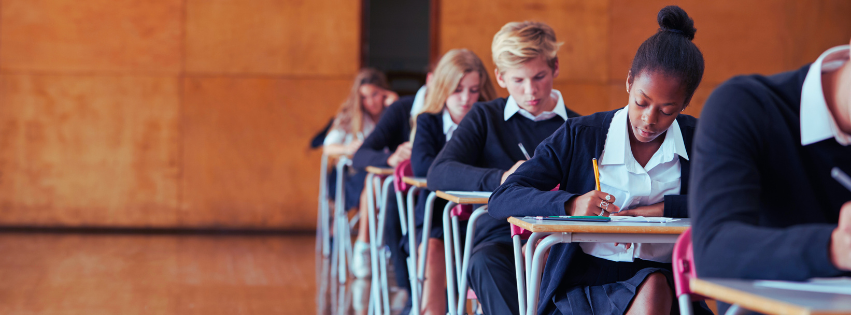We are two Christians who believe that exemptions to our discrimination laws are not necessary to protect religious freedom.
Laws that permit discrimination based on sexuality and gender do not protect our faith. They diminish it.
The example of Christ that we follow does not exclude. Rather, it invites and makes space for others.
Equality Australia has recently launched a powerful campaign to close legal loopholes that allow religious schools and institutions to discriminate based on a student’s sexuality or gender. The campaign is a response to Dismissed, Denied and Demeaned, a national report on LGBTIQA+ discrimination in faith-based schools and organisations.
The report contains personal testimony of LGBTIQA+ students being excluded from religious schools or denied leadership positions, safe learning environments, and milestones such as being accompanied to school formals by a partner of their choosing.
It also collates media stories in which school-based LGBTIQA+ discrimination has been reported. These include the case of a 7-year-old Western Australian girl who was told that she could only stay at her Christian school if she did not speak about her father’s same-sex relationship. The girl’s father reported being told, ‘If we knew you were gay at the interview, you would never have got in this school’. The school received over $5 million in taxpayer funding, but the girl and her family had no recourse under state or federal discrimination laws.
The legal loopholes give state-sanctioned protection to one version of Christianity. This is the problem. When governments try to protect religious freedom, they often ignore the fact that churches and believers are diverse. A law that satisfies one can offend another.
Religious freedom is a human right, but it is not an absolute right. All human rights are held in balance, with equal responsibilities.
There are some aspects of religious life where we agree that the law has no role. The government shouldn’t decide whether we sing Gregorian chant or ‘Oceans’. The law can’t mandate which version of the Lord’s Prayer we say. Police should not be able to arrest a preacher if the sermon is too long, even when it feels as long and boring as the Laws of Leviticus.
But there are also areas of religious life where society’s standards, enshrined in law, override religion. No one disputes that Sunday school teachers need a Working with Children Check. Minors cannot receive the sacrament of marriage. Trip hazards need to be managed in the church the same way as in the community centre or supermarket (even if that trip hazard is the altar itself).
We believe that religious freedom should be limited when it comes to safety, especially child safety. Just as churches must obey health and safety laws and child protection laws, religious schools have an obligation to keep their students safe, including LGBTIQA+ students.
It is estimated that more than 70,000 students in non-government schools are LGBTIQA+, and there is a convincing body of evidence that discriminatory policies and practices in schools impact the well-being of these students. A survey of over one thousand LGBTIQA+ students in Australia found that those who attended religious schools were more likely to feel shunned, unaccepted, unsupported, and punished compared to students attending government schools. These feelings have long-term impacts on a young person’s mental health and sense of self-worth.
The Albanese Government won the 2022 election with a promise to protect LGBTIQA+ students in taxpayer-subsidised religious schools. However, we are now approaching a new federal election with no action on this promise from either Anthony Albanese or Federal Attorney General Mark Dreyfus.
John Quigley, the WA Attorney General, promised to act on the Law Reform Commission’s August 2022 recommendations for changes to the state’s anti-discrimination laws. Ten months out from the next state election we are yet to see signs of action to strengthen equal opportunity provisions for LGBTQIA+ students in WA’s religious schools.
A Fairfax-Ipsos poll conducted in 2018 found that 74 per cent of voters oppose laws allowing religious schools to discriminate based on sexual orientation and gender identity. In the intervening five years, the arc of Australia’s moral universe is likely to have bent further towards justice. Yet, our state and federal laws have remained stubbornly static.
The time has come for reform. With the loopholes removed, religious schools will still be able to teach their core doctrines. Their love for God and neighbour will be enhanced, not denied.
We are praying that our elected leaders will put the safety of children first. Our faith compels us.
Fr Chris Bedding is Executive Officer of Faith Workers Alliance and an Anglican Priest. Dr Daniel Vujcich is CEO of WAAC and a member of the Uniting Church in Australia.
This article originally appeared in edited form in TheWest.com.au
